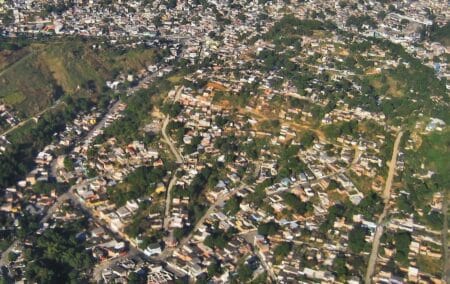The Institute of Race Relations (IRR) has written to the Banking Association of South Africa (BASA) to ask it to spell out its plan of action on settling mortgage bonds on expropriated property should the Expropriation Bill be passed in its present form.
In its letter to BASA, the IRR points out that where there are outstanding loans on expropriated properties, “either the expropriated title-deed holder will still be obliged to bay back his or her debt in full; or the bank will write off the loan that was connected to the property before its expropriation; or a combination of both. Our question is, which will it be?”
In a statement, the IRR points out that land stands as collateral in approximately R1.6 trillion worth of debt and BASA’s submission to parliament warns that the Expropriation Bill in its current form could trigger a financial crisis by undermining the property rights upon which the capital-allocation system depends.
‘If banks plan to force victims of EWC to continue repaying their loans, this needs to be clearly explained to clients in good faith. If banks plan to absorb any loss by writing off such debts, this needs to be clearly articulated to shareholders as well.’
This is the text of the letter sent to BASA:
‘Section 12 (3) of the Expropriation Bill directs that “(it) may be just and equitable for nil compensation to be paid where land is expropriated in the public interest, having regard to all relevant circumstances, including but not limited to…” circumstances contained in an open-ended list that follows.
‘In your submission to parliament on this Bill – and, in particular, Section 12 (3) – you wrote: “As a principle we are opposed to the insertion of this section as this represents a material dilution of property rights which we are opposed to and we recommend that this section be deleted”.
‘The Institute of Race Relations (IRR) made the same recommendation, based on the same concern. Like BASA, the IRR has for many years made proactive recommendations that would allow genuine land reform, in part a precondition of redressing deplorable actions mandated by the 1913 Land Act and similar racist legislation, in part a precondition of realizing deep economic growth.
‘Finding ourselves on the same page as BASA on these points, the IRR has a simple question. If the Expropriation Bill is passed as it stands, how will banks settle outstanding debts on encumbered properties that are expropriated without compensation, or for compensation significantly below market value?
‘In your submission you envisage such a scenario, from which the following three options emerge: either the expropriated title-deed holder will still be obliged to bay back his or her debt in full; or the bank will write off the loan that was connected to the property before its expropriation; or a combination of both. Our question is, which will it be?
‘This question is difficult, but it is also one of practical importance, and South Africans deserve a brief, simple answer. What makes it all the more difficult is that all BASA members are also members of Agbiz, the Agricultural Business Chamber of South Africa, whose representative on the President’s Ad Hoc Committee to amend Section 25 of the Constitution approved the policy of expropriation without compensation (EWC) on a wide scope. So far as the IRR is aware, no BASA member has withdrawn from Agbiz, or applied any public scrutiny to the fact that while BASA officially opposed EWC, as noted above, it is also openly and voluntarily affiliated with this endorsement of EWC to the president.
‘This kind of ambiguity, falling on both sides of the issue, complicates the question of whether BASA members intend to write off outstanding debts on encumbered properties that are subjected to EWC, or whether they intend to use private and government apparatus to force clients to pay back debts in full even after they have become victims of EWC.
‘The resolution of this ambiguity will, we hope, be a simple matter of stating your intentions in clear terms understandable to ourselves, your clients, and the nation.
‘We look forward to your written response.
‘Furthermore, the IRR invites you to a public discussion on the matter, on a special addition of the Daily Friend Show, one of South Africa’s top-ranked news and opinion podcasts. There, we would afford any BASA representative the opportunity to discuss the difficult position the banks and their clients find themselves in and explain how South Africans can expect to go forward once the Expropriation Bill becomes law – if it does – in its current form, as well as any other points BASA considers pertinent to the topics of land reform and property rights in South Africa.’


